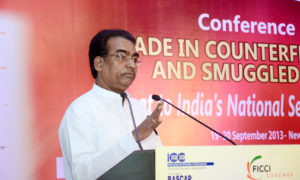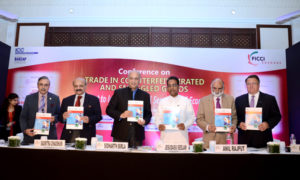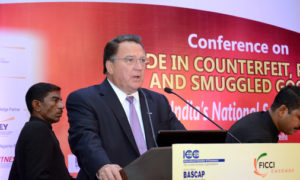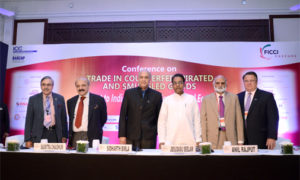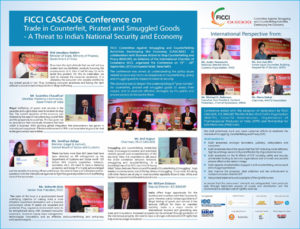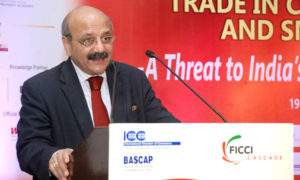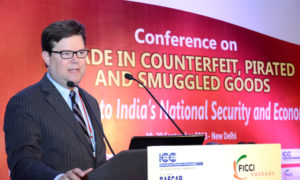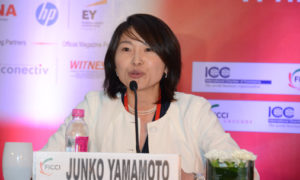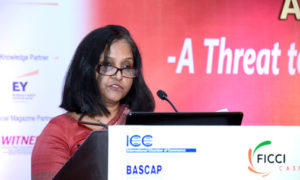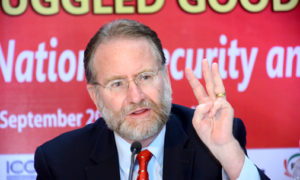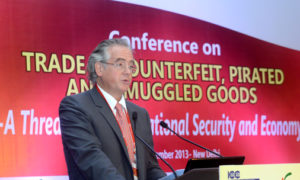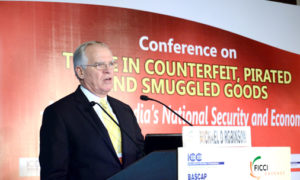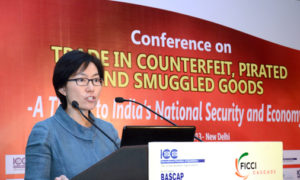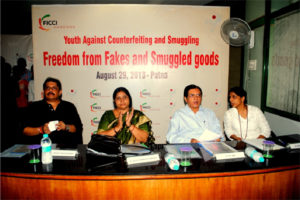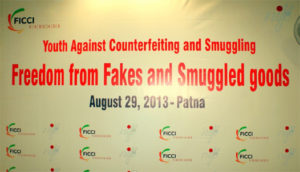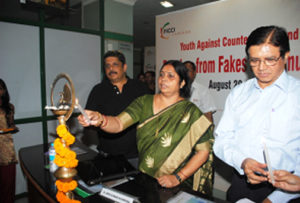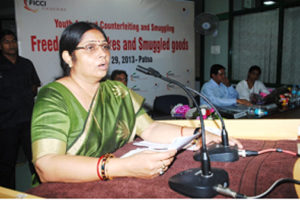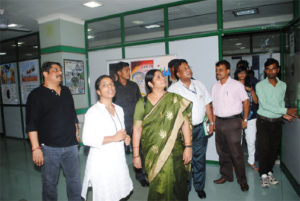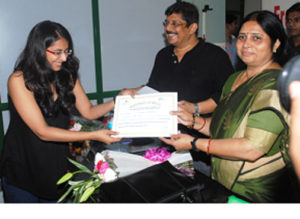Counterfeiting, piracy and smuggling used to finance terror
According to Ficci-Ernst & Young study suggested measures like setting up of govt agencies that should be solely responsible for preventing counterfeiting and piracy
Contemporary techniques like counterfeiting, piracy and smuggling are fast emerging as the likely sources for terrorism financing, according to a Ficci-Ernst & Young study. “Counterfeiting, piracy and smuggling are emerging as the likely sources for financing of international terrorist organisations, non-state sponsored terrorist organisations and domestic terrorist groups,” the study said. While conventional modes of terrorism financing such as state sponsorship and donations continue to play a big role, newer modes such as counterfeiting, piracy and smuggling have also started emerging and terrorist organisations worldwide are exploiting such means to further their cause, it said. The study suggested measures like setting up of government agencies that should be solely responsible for preventing counterfeiting and piracy. Besides, it also recommended strengthening of laws and regulations to aid enforcement agencies in investigating and prosecuting perpetrators of such crimes. According to the study, the government must create and implement standard technical solutions for piracy and smuggling, to be adopted across industry sectors and create awareness among consumers and enforcement agencies on the importance of effectively tackling counterfeiting, piracy and smuggling.
Lear MoreFICCI CASCADE Conference on Trade in Counterfeit, Pirated and Smuggled Goods – A Threat to India’s National Security and Economy, New Delhi
19/9/2013 | Imperial Hotel, New Delhi
Markets for illicit goods and services are an escalating problem that adversely impact legitimate industries, public health and consumer trust, government revenues and economies as a whole. This conference, organized by the FICCI Committee Against Smuggling and Counterfeiting Activities Destroying the Economy (CASCADE),with support from Business Action to Stop Counterfeiting and Piracy (BASCAP), an initiative of the International Chamber of Commerce (ICC) will look at the economic consequences of counterfeiting and piracy, and explore what is needed from the public and private sectors to deter this activity.
Discussions will contribute to an integrated vision of State security and public safety, providing an interdisciplinary dialogue which will attract industry regulators, state agencies, customs authorities, law enforcement, major producers of consumer goods, consumer associations and NGO’s. The objective is to deepen the understanding of “grey markets” for counterfeit and pirated commercial goods in India, including the domestic markets for these goods and the export and import of such goods from and to India.
The discussions will assess the impact on government, consumers and legitimate businesses, and promote effective strategies by the public and private sectors to dismantle this illicit activity.
This event will be an opportunity for government officials and experts to exchange views and put forward practical recommendations to resolve the problem of the counterfeiting and piracy in India.
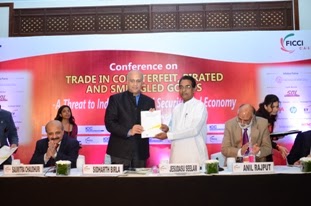
FICCI CASCADE releases knowledge paper with ernst & young on “counterfeiting,piracy and smuggling :growth threat to national security”
FICCI CASCADE today released a knowledge paper with Ernst & Young on “Counterfeiting, piracy and smuggling: Growing threat to national security”. A detailed report in collaboration with Business Action to Stop Counterfeiting and Piracy (BASCAP) on “Counterfeiting, Piracy and Smuggling in India – Effects and Potential Solutions” was also unveiled. The conference was organized by FICCI-CASCADE (Committee Against Smuggling and Counterfeiting Activities Destroying the Economy) & Business Action to Stop Counterfeiting and Piracy (BASCAP) an initiative of the International Chamber of Commerce (ICC), with the aim of promoting a better understanding of the socio-economic consequences of counterfeiting, piracy and smuggling and the impact on national security. Inaugurated by Shri Jesudasu Seelam, Minister of State, Ministry of Finance, Government of India, the conference was addressed by Shri Saumitra Chaudhuri, Member, Planning Commission, Government of India, along with other leaders from government and industry.Bottom of Form
Lear MoreProduct aids fight against counterfeiting
Plastics Color Corp. has entered the anti-counterfeit market with a new line of particle taggants. The Calumet City, Ill., firm said its Mi Batch taggants are compatible with a wide variety of resins to impart a high level of security and verification for consumer products, electronics, medical products, aviation and automotive. Plastics Color says counterfeiting is a multi-billion dollar threat globally. “Mi Batch was developed as an extremely cost-effective anti-counterfeit measure enabling manufacturers and retailers to protect brand identity and ensure supply chain integrity,” explains Plastics Color vice president of business development Tim Workman. The company’s taggants have a unique chemical and spectral signature for each customer. Taggant particles become an integral part of the plastic material or item. Detection equipment can read the signature to verify authenticity of the product. Plastics Color says it can make the taggants in any volume. They can be added to a masterbatch to ensure supply chain integrity.
Lear More
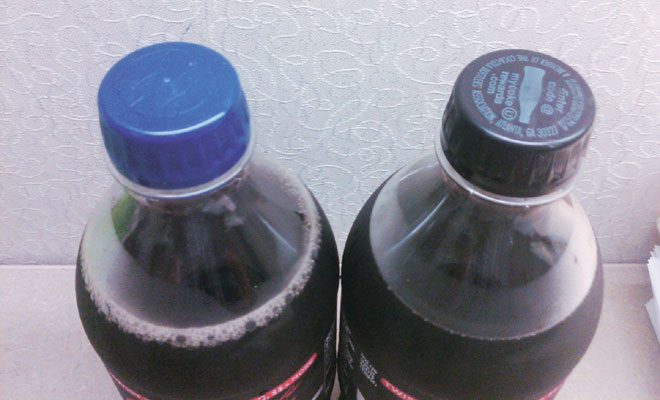
FMCG sector: Govt loss at Rs 16,546 cr due to counterfeit brands
To curb the growing menace of counterfeit brands, FMCG companies ITC and Coca-Cola India, along with the Federation of Indian Chambers of Commerce and Industry (Ficci), are planning to take stringent steps in the next few months. To start with, Ficci’s committee against smuggling and counterfeiting activities destroying the economy (CASCADE) has initiated a pan-India movement against smuggling and counterfeiting amongst youth and consumers. “We are organising the first policy debate of an international level next fortnight in Delhi. Our objective is to enhance our understanding of ‘grey markets’ for smuggled, counterfeit and pirated commercial goods in and outside India, to assess their impact, and to promote effective strategies,” said Anil Rajput, chairman of Ficci CASCADE.
Lear MoreMulti-factor authentication market to reach $5.45 billion by 2017
The two-factor authentication market will touch $5.45 billion by the year 2017, predicts MarketsandMarkets. The report looks at the market by authentication type, application and geography and predicts a compound annual growth of 17.3%. Multi-factor authentication refers to user and employee authentication that uses two or more verifying authentication techniques – hardware token, one-time password (OTP), password/PIN, biometrics, etc. Multi-factor authentication has become an integral part of personal and enterprise security due to increase in unauthorized access, fraud, border intrusion and more. To account for this, multi-factor authentication is being deployed at all the major security checkpoints at airports, commercial complexes, retail malls, banks, financial institutions and others. Multi-factor authentications value lies in its ability to provide accurate authentication along with a minimal margin of duplicity or error.
Lear MorePolice crack diploma counterfeiting groups
Chinese police have cracked two major diploma counterfeiting groups and detained at least 21 suspects, said railway police on Friday. Shanghai railway police raided two locations involved in counterfeiting diplomas and detained 21 suspects in late July, said a statement from the railway police division of the Ministry of Public Security. Police confiscated more than 40,000 fake seals of government departments and other institutions, and more than 50,000 fake diplomas at the locations, the statement said. Last week, Chengdu railway police raided another counterfeiting location and seized about 2,700 fake diplomas and 3,190 fake seals following a lead from a train passenger using a fake identification card, it said.
http://www.china.org.cn/china/2013-08/23/content_29807500.htm
Lear MoreFICCI-CASCADE and NIFT Patna organizes youth festival-Youth Against Counterfeiting and Smuggling, Patna
29/8/2013 | Patna
FICCI CASCADE (Committee Against Smuggling and Counterfeiting Activities Destroying the Economy)in collaboration with National Institute of Fashion Technology, Patna organized youth festival on the theme of “Freedom from Fakes and Smuggled goods” to increase awareness among the youth to fight against the menace of counterfeiting and smuggling. Around 200 students took a pledge to take proactive action and “Quit Fake” and “Fight Smuggling”. Hon’ble Renu Kumari Kushwaha, Minister for Industries and Disaster Management, Government of Bihar inaugurated the event and invoked the pledge among students. In her address the Minister congratulated FICCI CASCADE was initiating such an important movement and asked the students to actively join this movement in the interest of nation’s economy and security. She observed that the menace of counterfeiting smuggling is not only harming the industry and the government but also eating away the moralities of our society.
Anti-counterfeiting: customs brand registration
The global trade in counterfeit goods has reached staggering proportions, growing 10 000% over the past two decades, and resulting in a highly-profitable, illegal industry worth between R1.6 trillion and R4.8 trillion annually. To put this in perspective, this amounts to roughly 8% of world trade. Unfortunately, South Africa has become a major target for counterfeiters, with counterfeit goods in excess of R600 million being seized since 1997.Although there is a widespread impression that counterfeiting is a victimless crime, this is far from the truth. Apart from tax revenue lost, trade in counterfeit goods results in massive job losses, and erodes the market for genuine products. Closer to home, the consumption of counterfeit goods poses a real danger to human health and safety, as counterfeiting expands beyond the traditional bounds of luxury goods, DVD’s, clothing and cigarettes, to children’s toys, automotive parts, food products, and pharmaceuticals. From a brand protection perspective, counterfeiting impacts detrimentally on reputation and goodwill, in addition to causing a loss in sales and profits. Almost any conceivable product is fair game to counterfeiters, and the more popular and successful a brand becomes, the more appealing it becomes to counterfeiters.
Lear MoreHotels, bars told to remove liquor bottle labels after use
PUNE: The excise department of Pune has directed over 100 restaurants and bars in the district to scrape off labels from used bottles of Indian Made Foreign Liquor (IMFL) or mark a cross on the label on each side of the used bottle to prevent them from being reused to sell spurious liquor.
The directive, which came after instances of bootlegging were reported in the state, will also involve excise inspectors making mandatory checks in five-star hotels twice a month to make sure all used imported foreign liquor bottles are smashed and not sold to scrap dealers. The excise inspectors were also instructed to bring the used bottles in front of them during the routine inspections at permit rooms, bars, clubs and five-star hotels. Five star hotels, where imported liquor is sold extensively, will in fact, have excise officials checking twice every month to make sure that imported liquor bottles are being smashed after use.
Lear More



